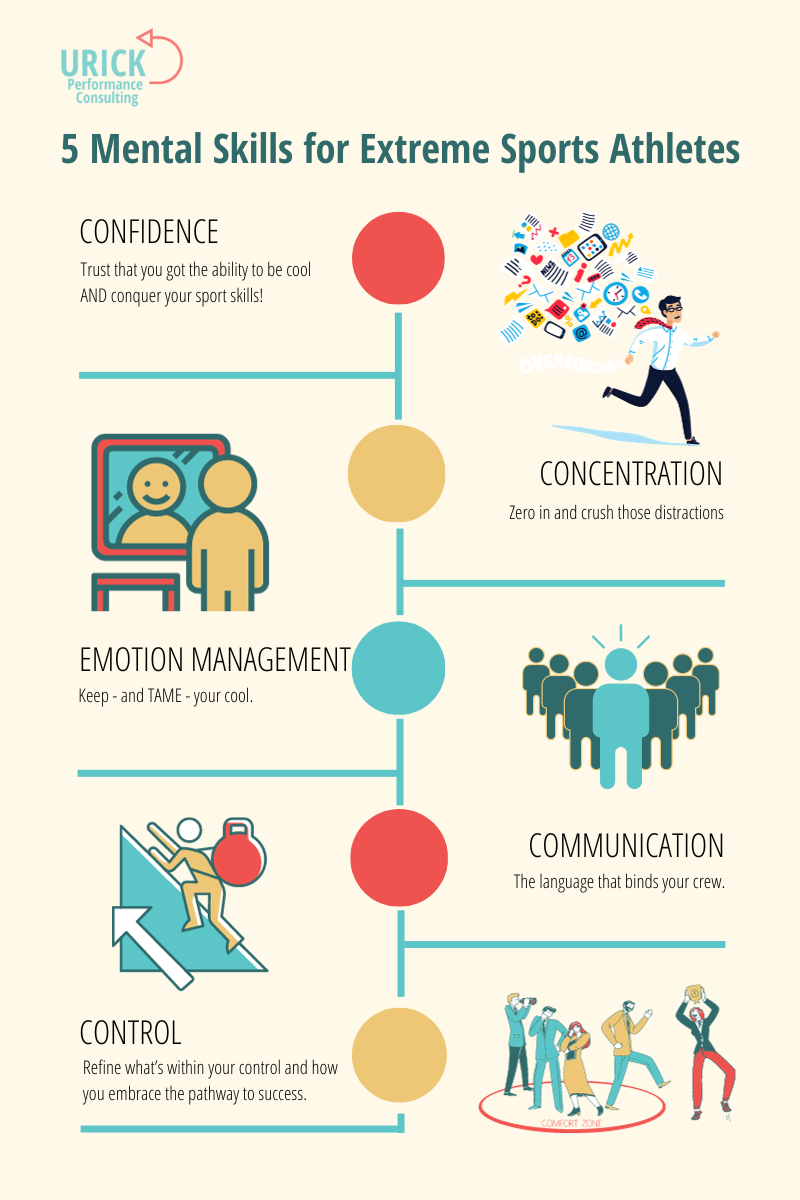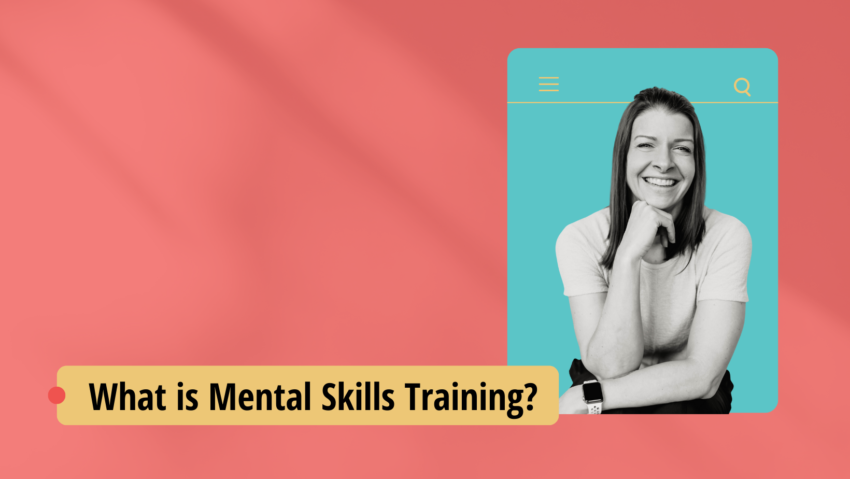We’re diving into the high-octane world of mental skills, where the secret sauce isn’t just physical – it’s all in your head!

I’m your coach on this journey, aiming to break down the essentials without drowning you in unnecessary hype. From shredding slopes to bowl dropping, let’s explore the foundational mental skills that can transform you into a psychological dynamo. Ready to delve into the crucial world of mental skills that can elevate your game to the next level? Here are 5 types of mental skills to master your sport:
- Confidence – Swagger Like a Champion
Confidence, my thrill-seeking comrades, is not simply about rocking the swagger but embodying the spirit of one. Picture yourself dropping into life’s challenges with the cool confidence of a pro skater nailing a kickflip down a massive stair set. It’s not cockiness; it’s knowing you’ve got the skills to conquer any mental halfpipe or downhill slope. - Concentration – Laser Focus for Epic Feats
Think of concentration as your mental turbo boost, the gnarly ability to zero in on that next mind-blowing trick or maneuver. Crush those mental distractions like you’re slashing through a killer wave, and soon you’ll be in the zone, pulling off tricks that’ll leave everyone in awe. - Emotion Management – Ride the Storm with Style
Life (and sport) is an emotional rollercoaster, but with composure, you’re the one setting the pace. Navigate through the chaos with the grace of a freestyle motocross rider soaring through the air. Keep your cool, adjust your mental gears, and ride the storm – cool, calm, collected. Composure isn’t about suppressing your wild side; it’s about taming it like a motocross maestro pulling off jaw-dropping stunts. - Communication – X-Games Level Mental Telepathy
Communication in sports isn’t just talking; it’s the X-Games level of mental telepathy. Communication is the unspoken language binding your crew. Non-verbal cues speak louder than words, creating a rhythm that elevates your team game. Mastering this silent symphony not only refines your connection but also propels your squad to conquer challenges with precision and confidence. - Control – Mastering the Art of Mental Freestyle
Control is your backstage pass to navigating the intricate pathways of your mind – the art of mental freestyle that lets you orchestrate your moves with finesse. It’s not about suppressing the chaos; it’s about turning it outward and onto your playing surface. Sometimes that means: riding the energy, embracing the chaos, and as you refine your control, you construct a path to success with every move.
In the realm of extreme sports, mastering your mental skills isn’t just a game-changer; it’s the key to unlocking a whole new level of epic. Keep it weird!
